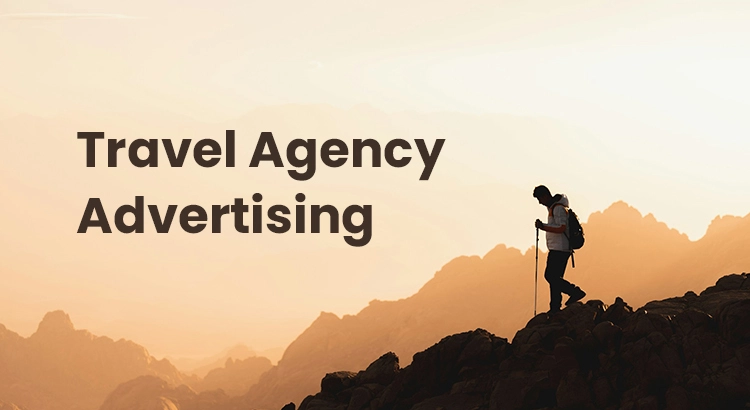The tourism sector has changed a lot in recent years. With more people doing their research and booking trips online, agencies in this field need to capture their customers’ attention through engaging website content and active social media presence, along with traditional marketing methods. The travel agency advertising methods explained in this article will help you stand out in a crowded market, connect with your target audience, and drive more bookings.
Advertising Strategies for Travel Agency
Here are some types of advertising to attract more customers.
1. Unique Selling Proposition (USP)
Establishing a strong Unique Selling Proposition (USP) sets your business apart from competitors. Your USP should highlight what makes your company unique, such as personalized itineraries, exclusive partnerships with hotels and airlines, or specialized experiences like adventure tours or luxury cruises. A clear and compelling USP can resonate with potential customers and motivate them to choose your agency over others.
2. Dynamic Web Presence
A modern, user-friendly website is essential for any tour operator. Ensure your website is visually appealing, easy to navigate, and provides comprehensive information about your services. Include features such as booking systems, destination guides, and blogs. A dynamic web presence not only attracts visitors but also encourages them to explore and ultimately book their trip through your agency. A reliable web design company will help you create a website that effectively showcases your offerings and enhances the user experience.
3. Mobile Optimization
With an increasing number of travelers using mobile devices to plan and book trips, optimizing your website for mobile is important. Ensure your site loads quickly, is easy to navigate on smartphones and tablets, and has mobile-friendly features. Consider developing a dedicated mobile app for your business to enhance the user experience and facilitate easy bookings.
4. Content Marketing
Creating high-quality, informative content is an effective way to engage potential customers. Blog posts, guides, videos, and infographics can position your company as an industry expert. Share valuable tips, destination highlights, and personal travel experiences to capture the interest of travelers. Content marketing not only attracts customers but also enhances your agency’s SEO performance. Business owners looking for content marketing can get the assistance of an expert digital marketing agency.
5. Networking Through Industry Events
Participating in travel expos, trade shows, and industry networking events is a great way to connect with potential clients and partners. These events allow you to showcase your business, learn about industry trends, and build relationships with other professionals. Networking can lead to referrals and collaborations that expand your client base.
6. Email Marketing
Email marketing remains one of the most effective advertising strategies for travel agencies. Build a targeted email list and send regular newsletters with travel deals, destination highlights, and personalized recommendations. Use engaging subject lines and compelling content to increase open rates and encourage bookings. Personalized emails can significantly enhance customer engagement and loyalty.
7. Search Engine Optimization
SEO is essential for increasing your agency’s visibility online. Optimize your website with relevant keywords, create valuable content, and ensure your site is technically sound to improve your search engine rankings. By appearing on the first page of search results, you can attract more organic traffic and potential clients. SEO solutions by expert agencies like startechdms.com can help enhance your online presence and drive targeted visitors to your site.Top of FormBottom of Form
8. Tailored Services
Offering tailored services based on customer preferences can enhance client satisfaction and encourage repeat business. Develop personalized packages that cater to specific interests, such as adventure trips, wellness retreats, or cultural experiences. By demonstrating that you understand your clients’ needs, you can build trust and loyalty.
9. Referral Marketing
Leverage the power of word-of-mouth by implementing a referral marketing program. Encourage satisfied clients to refer friends and family by offering incentives, such as discounts on future bookings or exclusive offers. Positive reviews and recommendations from previous clients can significantly influence potential travelers’ decisions.
10. Paid Advertising
Investing in paid advertising can boost your agency’s visibility and attract new customers. Consider pay-per-click (PPC) campaigns on search engines and social media platforms to reach a broader audience. Use targeted ads to promote special offers or new tour packages to potential clients who may not be aware of your agency.
11. Retargeting Campaigns
Retargeting campaigns allow you to reach potential clients who have previously visited your website but did not complete a booking. By displaying targeted ads to these users on social media or other websites, you can remind them of your offerings and encourage them to return and book their travel. Retargeting helps keep your company top-of-mind and increases the chances of conversion.
12. User-Generated Content
Encourage your clients to share their travel experiences through user-generated content (UGC). Feature their photos, reviews, and testimonials on your website and social media platforms. UGC not only provides authentic content but also fosters a sense of community and connection with your brand. Highlighting real traveler experiences can inspire potential clients to book their trips with your company.
13. Social Media Marketing
Social media platforms are essential for engaging with potential clients and showcasing your travel offerings. Create interesting posts, share travel tips, and run contests to encourage interaction. Utilize platforms like Instagram, Facebook, and Pinterest to reach a wider audience and promote your unique packages. Consistent engagement can build a loyal community of travelers who turn to your brand for their next adventure.
Conclusion
Implementing effective advertising strategies is important for travel agencies aiming to attract more clients in a competitive market. By understanding your target audience and continually adapting to their needs, you can build lasting relationships that encourage repeat business. Highlighting your unique strengths and delivering exceptional customer service will further enhance your agency’s reputation and drive success in the industry.
